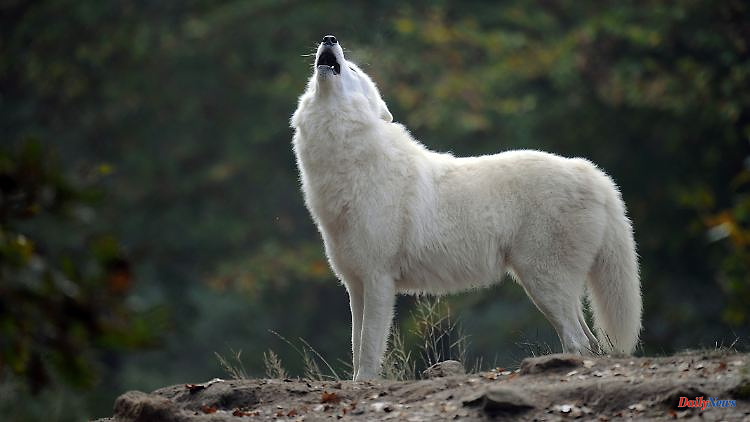In the wild, wolves use their distinctive howls to communicate over long distances. But how do domestic dogs, which are closely related to wolves, react to wolf howls? A research team tests it - and finds a strong human influence.
Domestic dogs are closely related to wolves - but do they still understand their wild relatives? Typical of wolves is their howling. They use it for long-distance communication with other wolves, to mark territory boundaries and to determine the position of other wolves, which usually respond with howls as well. But how do domestic dogs react to howling?
Behavioral scientists working with lead author Fanni Lehoczki from the Eötvös Lorand University in Budapest have investigated this. They discovered that domestic dogs forget how wolves howl when they are in close proximity to humans. The researchers had previously played recordings of wolf howls to 68 purebred dogs and observed their reactions, as they write in the journal Communications Biology. They also determined the genetic similarity of the various dog breeds to wolves.
The results showed that dog breeds that are genetically very similar to wolves are more likely to respond to recordings of wolf howls with their own howls. Breeds more distantly related to wolves, on the other hand, tended to react by barking.
However, the researchers only found this association in older dogs. They therefore assume that dogs of most breeds can howl, but that this ability has lost its function in humans because of their changed social environment. As a result, many dogs of modern breeds would no longer use howling in the appropriate situations.
In addition, it has been found that breeds that howl more are also under stress at the same time, explained senior author Tamás Faragó from the same university. The team theorize that ancient races are better at converting wolf howls into information than modern races. In the test situation, the dogs of old breeds might have felt in the territory of a strange pack, which caused them stress. So they signaled their presence to the howling pack by howling to avoid a possible encounter, Faragó guessed. "As wolves do."
According to the study, dogs older than five years of more original breeds reacted with howling. It's also possible that the howling that occurs at higher levels of stress is a fear response, and that older dogs are more fearful of the situation, Faragó said. Further investigations are needed to verify this.
(This article was first published on Tuesday, February 07, 2023.)












